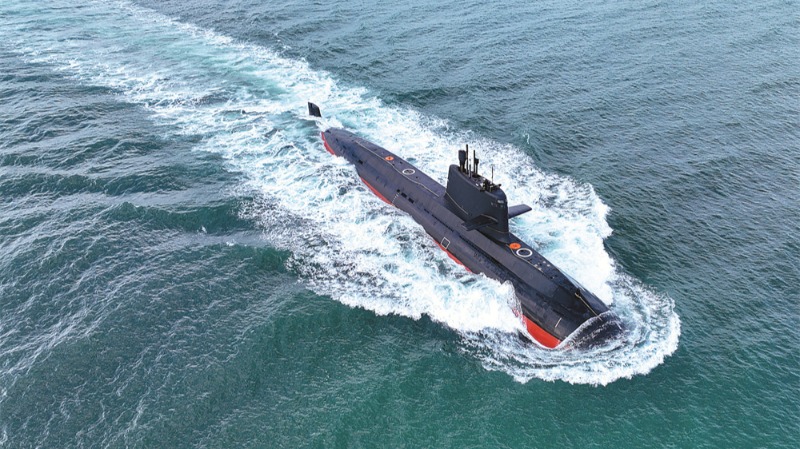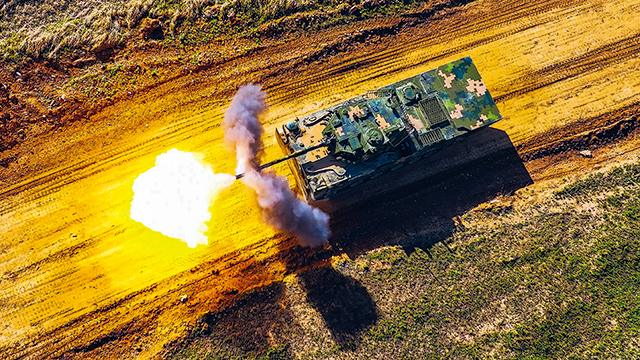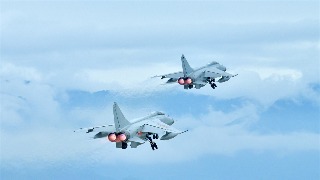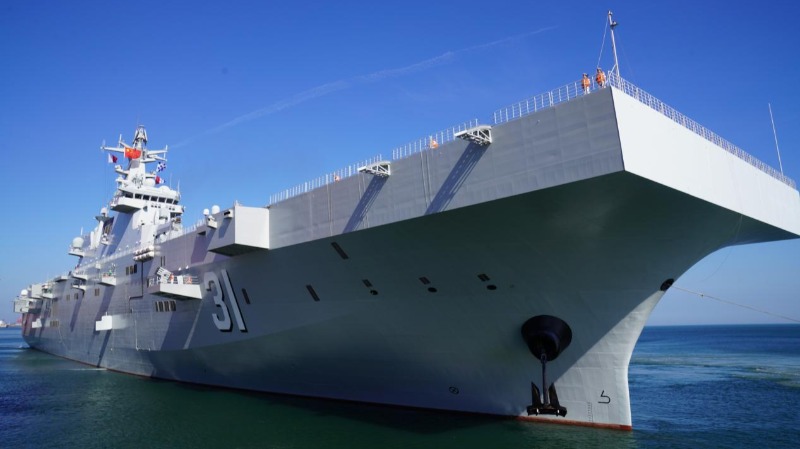By Guo Xiaobing and Zhao Kexin
China and the US had the 17th China-US Defense Policy Coordination Talks from January 8 to 9. The meeting is a routine annual working dialogue mechanism between the Chinese and US militaries initiated in 2005, which was interrupted in 2022 after Speaker of the US House of Representatives Nancy Pelosi visited China's Taiwan region. This is the first working meeting after more than a year and the second-time interaction in less than a month between the Chinese and US militaries.
The agenda of the meeting mainly consists of two parts. First, the two sides exchanged views on the arrangements for mil-to-mil exchanges in 2024. This means that China-US Military Maritime Consultative Agreement meetings, conversations between theatre commanders, and even meetings between the defense chiefs may be successively scheduled.
Second, both sides expressed their positions and concerns on current hotspot issues. China focused on three issues. Firstly, there will be no compromise or concession on the Taiwan question, and the US must adhere to the one-China principle, effectively fulfill relevant commitments, cease arming Taiwan, and oppose Taiwan's "independence". Secondly, China urged the US to reduce military deployments and provocative actions in the South China Sea and cease supporting infringements and provocations by individual countries. Thirdly, China called on the US to fully recognize the root causes of maritime and airspace security issues, strictly restrain frontline forces, and cease exaggeration and manipulation.
The US reiterated its commitments and claimed to be dedicated to maintaining "peace and stability" in the Taiwan Strait. Additionally, the US highlighted three key issues. Firstly, the US insisted on "freedom of navigation" and the right to "fly and sail anywhere international law allows" in the Indo-Pacific region. In practice, this signifies the US' intention to continue conducting various close-in reconnaissance activities in accordance with its interpretation of international law. Secondly, the US emphasized its commitment to the Indo-Pacific and global allies remains rock-solid. In other words, the US intends to continue intervening in disputes between China and its neighboring countries, causing various troubles in East Asia and Northeast Asia for China. Thirdly, the US expressed concerns regarding security issues involving third parties, such as the Ukraine crisis and recent developments in the DPRK.
It can be seen from the concerns of the Chinese and US militaries that the two sides still have differences on some major issues.
First, whether the US' commitments can be realized needs to be assessed based on its words and actions. Especially with the recent conclusion of Taiwan's leadership elections, it is crucial to closely monitor any potential moves by the US military.
Second, the US treats the open seas and their airspace as if they are its own, positions itself as the "guardian of global public domain security", and even disregards the territorial sovereignty of other countries. Relying on so-called crisis management, security barriers, and professional operations alone will not address the fundamental problems or mitigate conflict risks.
Third, the US military considers instigating confrontations between neighboring countries and China as a crucial element of its "integrated deterrence" strategy. Whether there are regional issues or not, it may either exacerbate existing tensions or fabricate conflicts. Unless the US abandons its fundamental strategy of major-power competition with China, it is destined to play the role of a regional disruptor.
China's concerns are about core interests such as sovereignty and territorial integrity and the US must genuinely respect these concerns as they are the basic prerequisite for the exchanges between the two militaries to stay on the right track. The resumption of high-level, offline meetings between the Chinese and US militaries should be seen as a positive starting point. The two sides should deepen mutual understanding through exchanges, and the US side in particular should reverse its misunderstanding of China, so as to create conditions for the stabilization of bilateral relations and even the achievement of effective cooperation on some issues.
(Guo Xiaobing, director of the Center for Arms Control Studies, China Institutes of Contemporary International Relations; and Zhao Kexin, research assistant at Shanghai Institute of American Studies.)
Editor's note: Originally published on china.com.cn, this article is translated from Chinese into English and edited by the China Military Online. The information and opinions in this article do not necessarily reflect the views of eng.chinamil.com.cn.




















